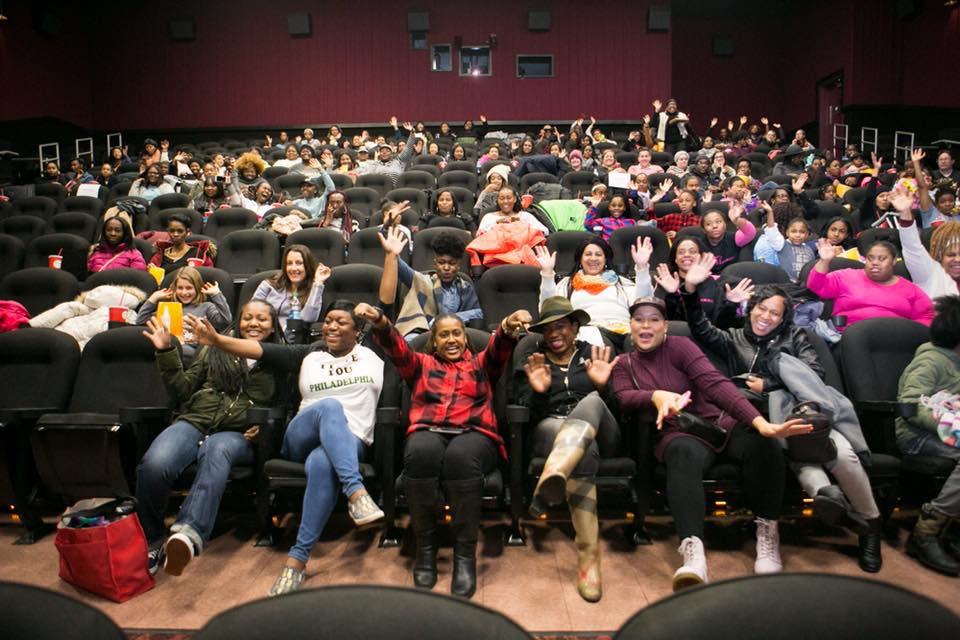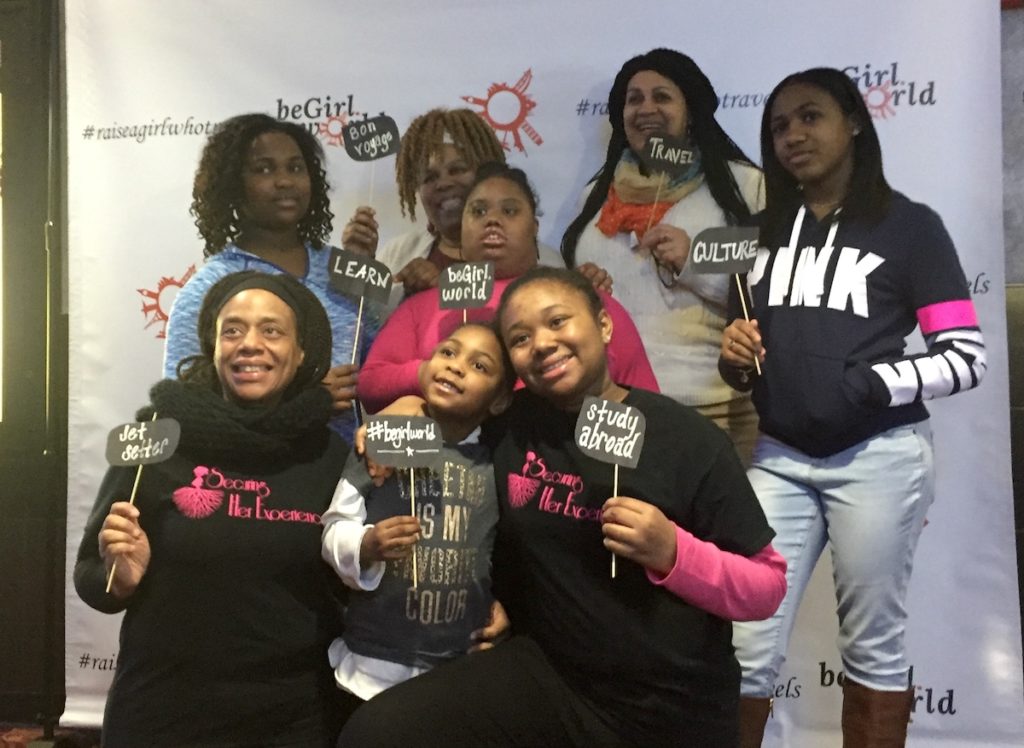Why representation matters
 January 25, 2017
Category: Feature, Featured, Long, Purpose
January 25, 2017
Category: Feature, Featured, Long, Purpose
Disclosures
Editor's note: Technically Media Marketing Manager Jeanette Lloyd is a volunteer with beGirl.world.In Judith Ruley’s life, she couldn’t sit at a lunch counter because of her skin color. She remembers having to sit in the back of the bus.
She remembers the social norms that kept her from being friends with people who didn’t look like her. It wasn’t that there were explicit rules — it’s just that “that was the way it was.”
“Back in the day, you didn’t have friends who were somebody different than you,” said Ruley, now 65. “White folks stayed here, Black folks stayed here. We were friendly with one another, but no socializing.”
And it certainly wasn’t common for Black girls like Ruley to see women who looked like her in the movies — working at NASA, no less.
Ruley was one of about 100 women and girls who gathered at Riverview Stadium in South Philly two weeks ago to watch “Hidden Figures,” the true story of three Black female mathematicians who were integral to NASA’s first launch of an astronaut into orbit in the 1960s. A number of such screenings have happened across the country — Octavia Spencer herself sponsored one in L.A.
Why? Because representation — young people seeing those who look like them in all sorts of places — matters. Just ask #1000BlackGirlBooks founder Marley Dias or the female entrepreneurs featured in “She Started It.”
This screening was hosted by Philly nonprofit beGirl.world, which seeks to expose young women to educational, career and other opportunities. During two-year cohorts, girls in the program are taken on a number of field trips — mostly in Philadelphia and the Mid-Atlantic region, though the recently graduated cohort also visited London and Paris.
“A lot of them are from the inner cities, they’re from low-income housing, they’re from places where they don’t really see a lot of opportunities,” said cofounder LaToya Stroman. “Coming to a movie like this, this is what we’re about. This is all about expanding beyond your wildest dreams.”
As a Black woman working as a producer in the entertainment field, the issue of representation is close to Stroman’s heart, she said.
“I literally decided to move to Los Angeles because I kept watching television and I didn’t see enough of me on the screen,” Stroman said. “Having the opportunity to see a film like ‘Hidden Figures’ in a theater with all these girls and their moms, to let them know how important it is to be represented in a way that your work speaks for itself — that’s what this film did — this was just so inspiring.
“Representation is everything.”
Deesha Dyer is someone else who knows the importance of representation: The Philly native recently ended her tenure as White House social secretary under the country’s first Black president. Dyer has been a longtime supporter of beGirl.world and said now that she’s out of Washington, she plans to spend more time building the organization.
To her, representation is about possibility.
“Especially for women of color and women in STEM, I think it’s really about women seeing that they can do something, and seeing somebody else do it before them so they know that it’s possible,” Dyer said. “We’re all going through our own battles, and seeing people [in this film] that have been through this giant, huge battle, it’s like, ‘I can get through it, too.'”
There’s still work to do. What struck this reporter most about “Hidden Figures” was that so many of those struggles and prejudices the main characters experienced are still present. In many fields, like tech, there’s still a race and gender imbalance. There’s still a dearth of people of color who are able to tell their stories through mass media.
We still have a ways to go before reaching full racial and gender equality — see last weekend’s Women’s March for example.
But here’s some hope: I talked with few young girls — Alexis, Tatiana, Jereya and Samaya — who attended the screening through likeminded nonprofit Empower ME and asked what they thought of the film, if it made them want to do things other people might assume they couldn’t do. Their responses were encouraging.
- “I liked that it encouraged girls to fulfill their dreams, and if they want to do something, they should just do it.”
- “It had me thinking I could do anything I could put my mind to, no matter what people think.”
- “Other people would think a man could do a job better than a woman. A woman can do a job the exact way a man would do it.” (“Or better,” another added.)
- “I like this event because it helps us girls learn that we can do anything and no man or no girl is better than us.”
Ruley agreed.
“These women [in the film] were role models for other women and for Black women in particular,” she said. “It’s a good movie for all people to see — not just females [or] people of color. Kids nowadays don’t know what it was like back in the bad old days.”
Philly’s tech community is rallying now to fill a screening of “Hidden Figures” with nonprofit Camp Sojourner this Thursday. Help them out here.
Trending News











